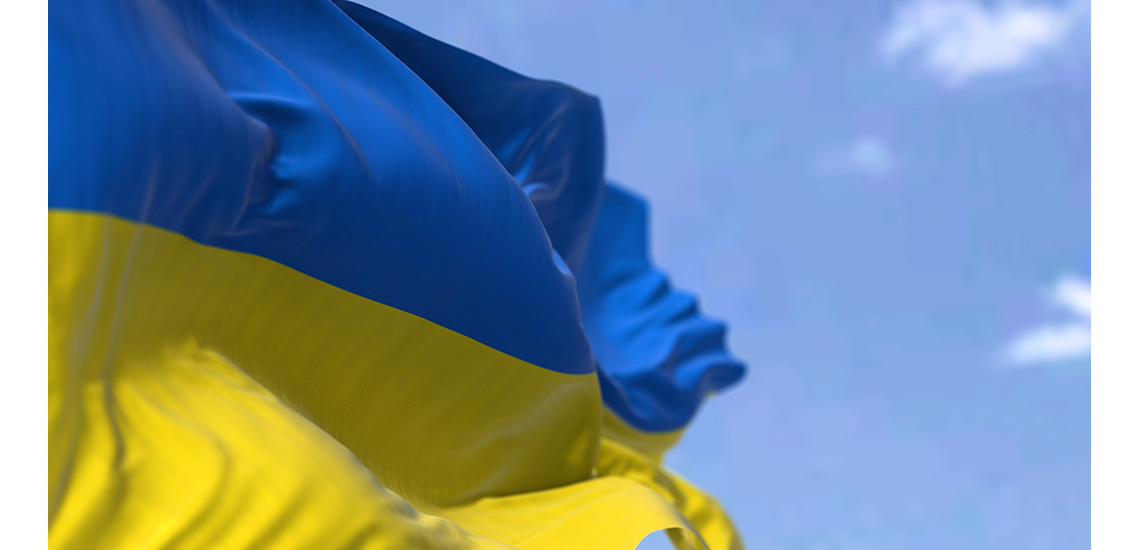How Does the Russian Invasion Hit Tyre Recycling in Ukraine?
What is Next for Ukrainian Recycling?
To be fair, it is a pretty inconsequential question to be asking as we sit on the side-lines and watch Ukraine being invaded by Russia.
The truth is that we don’t really know. In war, everyday life still somehow has to go on. Except that in Ukraine, daily life has essentially been suspended.
Tyre recycling in Ukraine was not a priority before the conflict; they reputedly recycled just 10 per cent of the 180,000 – 200,000 tons of end-of-life tyres they have annually. According to German studies, the vast bulk of all Ukrainian waste was, until very recently, sent to landfills. However, Nestle and Veolia were in the process of developing waste to energy plants in the country.
Tyre and Rubber Recycling is aware of just a few projects in Ukraine – EcoTyre, a start-up that was working on tyre collection and was trying to raise funds, around 700,000 Euro to set up a recycling line. They were registered in Germany for political reasons, but their operation was based in Ukraine.
EcoTyre intended to set up a project using microwave technology to recycle tyres in a mobile plant. The company was talking to CEYES and MTB about taking the next step in 2019.
Mobius is a pyrolysis project that has specialised in creating activated Carbon. The company presented at a past ETRA conference and had a very youthful approach to the business. Unfortunately, perhaps, their plant was sited at a refinery outside Kyiv, which has almost certainly been subjected to an assault by Russian forces.
TSK Recycling in Kharkov has reported bombing and conflict in and around the city. It isn’t easy to verify the video footage, but some of it is universally available and may come from other towns. It is clear, though, that recycling is not at the forefront of their minds at the moment.
In September 2017, Eco Green supplied equipment to German Polytan GmbH, operating Boryspril outside Kiev.
A fifth project, the VSK Recycling Group, was under investigation after complaints from local residents, but we never discovered the outcome of the complaints.
In issue 2-2021 of Tyre and Rubber Recycling – our correspondent Vladimir Vorotnikov, a native of Kharkiv, wrote about recycling in Ukraine. He reported that; “A new tyre recycling plant is about to begin operation in the city of Mukachevo, the regional government said in a statement on its website. The plant is designed for grinding used tyres into rubber crumb, which is expected to be used in constructing children’s playgrounds throughout the country…
“… In June of 2020, a new Waste Management Bill passed the first reading in the Verkhovna Rada, the Ukraine Parliament. Lawmakers were planning to introduce producer responsibility for tyre recycling, similar to that in the European Union. However, the Bill never made it to its second reading, and now its future remains vague.”
The conflict will have brought the nascent Ukrainian tyre recycling industry to a grinding halt.
The impact of the war in Russia will not be quite so physically detrimental, as there is no conflict in the country. However, the chaotic management of waste in the country will not be enhanced by the anticipated hyperinflation and sanctions – the latter being a double-edged sword if Russia cannot get the natural rubber supplies required to manufacture truck tyres. It may therefore resort to a higher level of rubber recovery to provide raw materials for the tyre industry, and as in past conflicts, retreading will come to the fore – although Russia’s recycling sector is not really geared up to large scale recovery as it has no markets. For the most part, its retreading industry is antiquated or restricted to just a handful of modern plants.




















